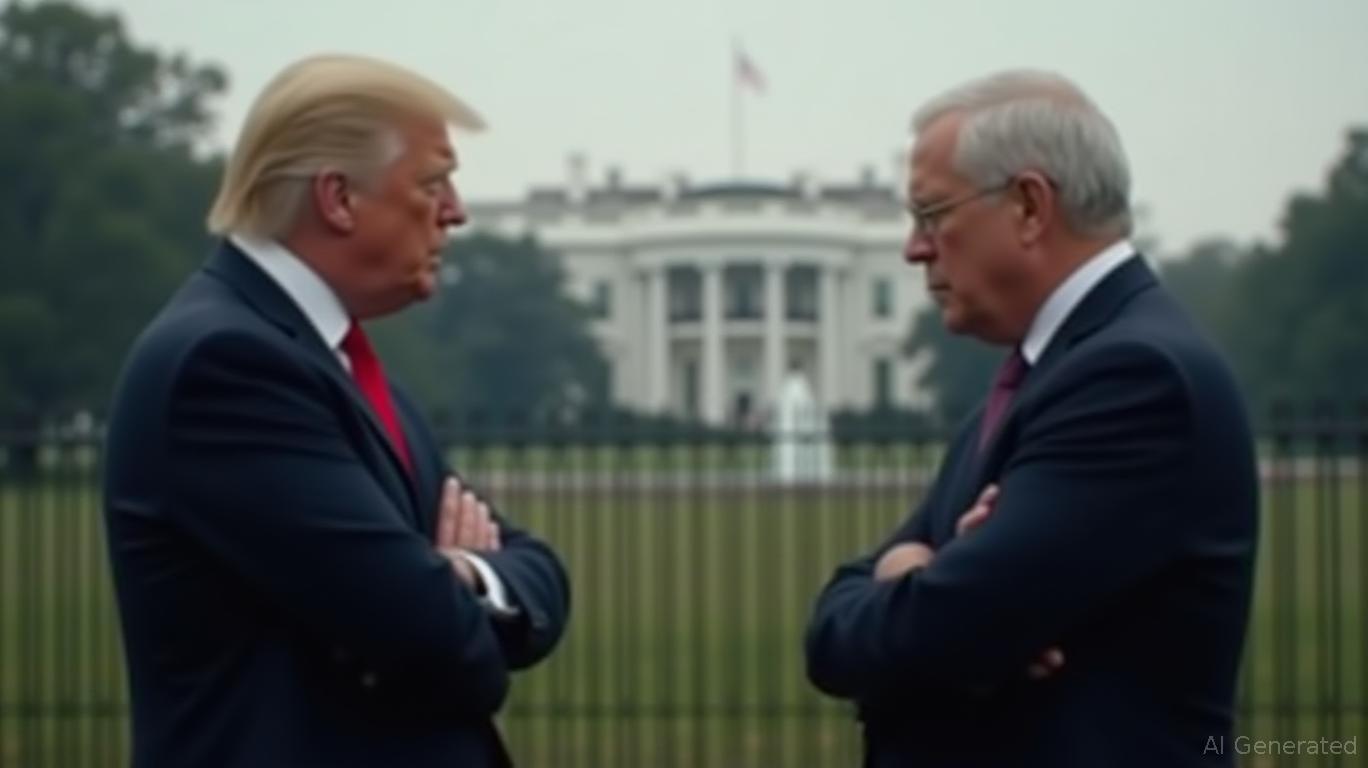Recent developments in the U.S. economy have brought renewed attention to the independence of the Federal Reserve amid growing pressure on Governor Lisa Cook. President Donald Trump has publicly threatened to remove Cook from her position if she does not resign, citing allegations of mortgage fraud related to her prior property transactions. These accusations were leveled by Federal Housing Finance Agency Director William Pulte, who has been a vocal critic of Fed Chairman Jerome Powell and a strong advocate for lower interest rates. Pulte formally referred the matter to the Department of Justice for a criminal investigation.
Cook, a Federal Reserve Governor appointed by Joe Biden, has consistently supported the Fed’s monetary policy decisions in alignment with Powell. In response to the allegations, she issued a statement emphasizing her commitment to the role and denying any intent to resign under pressure. “I have no intention of being bullied to step down from my position because of some questions raised in a tweet,” she stated. Cook also affirmed her intention to address any legitimate inquiries with factual clarity. The Federal Reserve has not commented on the allegations or the political pressure directed at Cook.
Trump’s statements have heightened concerns among financial markets and economists about the potential politicization of the central bank. The president has historically criticized Powell’s monetary policy decisions, often urging more aggressive rate cuts. His recent comments have also included threats to allow a legal challenge against Powell to proceed and to consider candidates to succeed him before his current term ends in May 2026. These developments have led to increased volatility in prediction markets, where the likelihood of Cook’s removal as governor rose to over 30% following Trump’s remarks.
Current and former Fed officials have largely emphasized the importance of maintaining the central bank’s independence. Cleveland Fed President Beth Hammack, for instance, publicly defended Cook, stating she is “an outstanding economist and a person of high integrity.” Similarly, former Boston Fed President Eric Rosengren cautioned that a decision by Cook to resign or remain in her position should be based on facts rather than allegations. “Until there’s some facts out, I don’t think people should draw any conclusion,” Rosengren noted.
The broader implications of this situation extend beyond individual personnel decisions. Former Fed Vice Chair Roger Ferguson underscored the need for public education on the role of the Fed in managing inflation and stabilizing the economy. He stressed that undermining the Fed’s independence has had negative consequences in other countries and warned that public support for an independent central bank is crucial for maintaining its effectiveness. “The Fed is the institution whose mandate is to control inflation,” Ferguson said, adding that it is important for the public to understand why central bank independence is vital.
At the same time, the Fed has been navigating a complex economic environment characterized by slowing growth, persistently elevated inflation, and shifting policy expectations. Recent data indicate that the U.S. economy is experiencing a softening labor market, with payroll job growth slowing and unemployment remaining at a historically low level. Inflation, though lower than post-pandemic peaks, still remains above the Fed’s 2% target, with tariffs contributing to upward pressure on goods prices. The central bank has maintained a data-dependent approach, keeping interest rates steady since December, while closely monitoring the evolving economic conditions.
The potential removal of a Fed governor could have significant structural implications for monetary policy, particularly as Trump prepares to nominate a new Fed chair and another governor in the coming months. If Cook were to leave, it would open a seat for a Trump appointee, increasing the influence of the administration on the Fed’s 12-member rate-setting committee. This scenario raises questions about how the central bank’s independence will be preserved in the face of growing political pressure.
Despite the controversy, the Fed’s recent actions and statements reaffirm its commitment to its dual mandate of maximum employment and price stability. The Federal Open Market Committee recently approved updates to its Statement on Longer-Run Goals and Monetary Policy Strategy, emphasizing its focus on promoting economic resilience and transparency. The revisions reflect lessons learned from recent economic developments, including the effects of large policy shocks and the need to maintain well-anchored inflation expectations.
While the situation remains fluid, it is clear that the independence of the Federal Reserve is under closer scrutiny than ever. The outcome of the ongoing investigations into Cook’s conduct, as well as the broader political dynamics surrounding the Fed, will be closely watched by markets, policymakers, and the public alike.
Source:
[1] Here’s what current and former Fed officials are saying about Lisa Cook investigation (https://www.cnbc.com/2025/08/22/heres-what-current-and-former-fed-officials-are-saying-about-lisa-cook-investigation.html)
[2] Federal Open Market Committee announces approval of updates to Statement on Longer-Run Goals and Monetary Policy Strategy (https://www.federalreserve.gov/newsevents/pressreleases/monetary20250822a.htm)
[3] Monetary Policy and the Fed’s Framework Review (https://www.federalreserve.gov/newsevents/speech/powell20250822a.htm)
[4] The Fed – Monetary Policy: Minutes of the Federal Open Market Committee (https://www.federalreserve.gov/monetarypolicy/fomcminutes20250730.htm)
[5] Trump says he’ll fire Fed Governor Lisa Cook ‘if she doesn’t resign’ (https://www.cnbc.com/2025/08/22/trump-fire-fed-lisa-cook-powell.html)
[6] Trump says will fire Fed governor Lisa Cook if she doesn’t resign (https://www.nbcnews.com/business/economy/trump-says-will-fire-fed-governor-cook-doesnt-resign-rcna226554)

